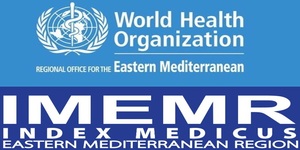Evaluation of School Health Surveillance System in Baghdad Governorate
DOI:
https://doi.org/10.36321/kjns.vi20141.2432Keywords:
Evaluation, school health, surveillance systemAbstract
Objective(s): A descriptive evaluation study is conducted on primary health care centers, primary health sectors, health directorates in Baghdad Governorate and General Health Directorate/ Ministry of Health of November 27th 2011 to June30th 2012.
Methodology: A probability multistage sample of (54) subjects which is selected of school health units. Data are collected throughout the utilization of the developed questionnaire and interview technique and keeping records of all available contacts. Interviews are conducted with the chief of school health unit in each stage level. Questionnaire has been divided into three main parts consist, in (A) especially for health directorate, in (B) for health sectors, and in (C) for primary health care centers each form contains the basic components; consists of manpower and health facilities; consists objectives, system components, resources, feedback and attributes.
Results: consists prevention and behavioral indicators and disease prevalence indicators, total items of questionnaire was (217) items. Reliability of the questionnaire was determined through pilot study and validity determined through a panel of experts consists of (13) experts. Data were analyzed by using of descriptive data analysis (frequencies and percentages). The study results indicate that the system is average adequacy, simple, moderate flexible, highly acceptance, representative, low utility, unstable system. The study recommended computerizing as addition to manual documentation. Statisticians may coordinate the monthly surveillance forms. Engage the nurse in school units in primary health care centers. Involving all health institutions and centers related to school health in the surveillance system program.
Conclusions: Lack of cooperation between the public and private. In the absence of mechanisms to provide feedback or disseminate data to the decision makers, the usefulness of school health surveillance system was very limited. The system adequate in primary health care centers more than health sectors and health directorates. The system has low utility in primary health centers and high ones in both health sectors and health directorate. System attributes are simple, moderate flexible, high acceptance, Representative and unstable system, moderate data quality.
Recommendation: Provision of laboratory and radiological facilities and integration of their data in school surveillance. Review the surveillance forms to ensure reporting useful data. Besides enhancing representativeness of school health, there is need to have a regular feedback and information dissemination mechanism. Available data may be computerized as addition to manual documentation. Statisticians may coordinate the monthly surveillance forms. Engagement of the nurse at school units in primary health care centers. Involving all health institutions and centers related to school health in the surveillance system program. Customizing special financial of school health isolation of the general budget.
Downloads
Downloads
Published
How to Cite
Issue
Section
License
Copyright (c) 2014 Ali Hadi. M.Sc.N Prof. Dr. Mohammed F. Khalifa

This work is licensed under a Creative Commons Attribution 4.0 International License.













